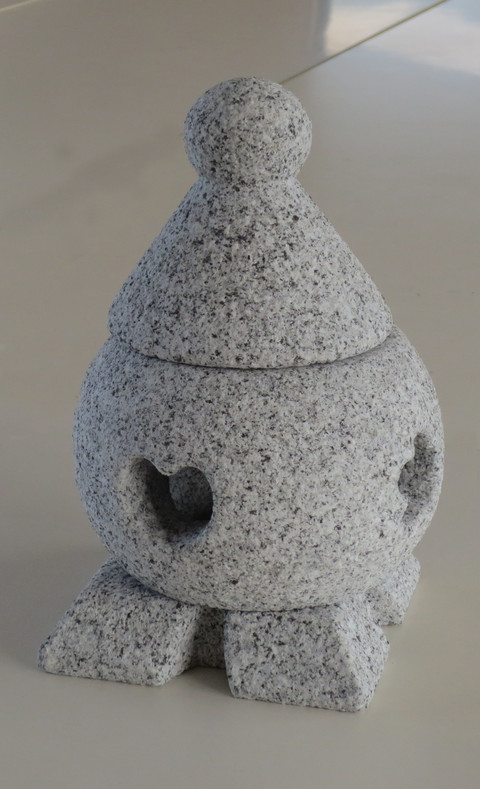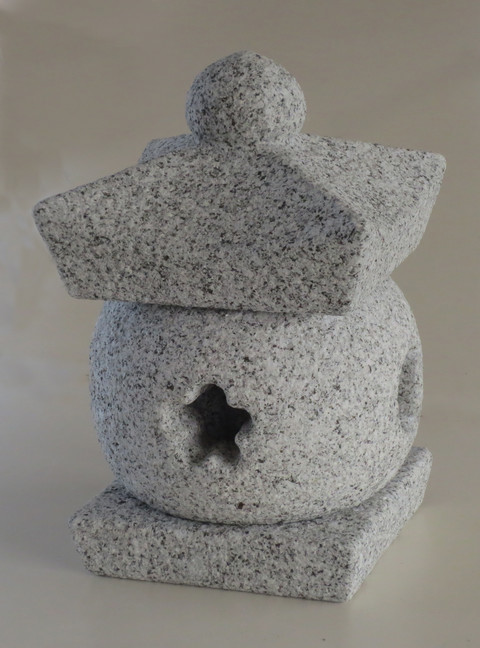茨城真壁地方は、質の良い花崗岩(かこうがん)が採れることから、古くから石を生活用具として加工、利用していました。
この地方の石材業の起こりは、室町時代末期に真壁町長岡地域一帯で始められた仏石作りであると伝えられています。真壁石燈籠として確認できるものとしては、真壁町の寺院境内にある、文政7年(1824年)に製造されたものが最も古いとされており、これを作った石工によって技術・技法が確立されました。

Good quality granite found in the Makabe area of Ibaraki Prefecture has been used to make a variety of useful articles since ancient times. The actual working of stone in the area began around the end of the Muromachi period (1333-1568) with the making of Buddhist stone articles around Nagaoka in Makabe-cho. The earliest confirmed Makabe stone lantern stands in the temple compound in Makabe-cho. It was made by Kubota Kichibei in 1824, and he was responsible for establishing the skills and techniques of the craft.
Special features of these lightly colored lanterns are their superb craftsmanship, the light touch of the beautiful carving and their sense of weightiness. They provide traditional Japanese gardens with an added quality and elegance, their special features being accentuated further by the moss which tends to grow on the stone. Apart from garden items, lanterns and other items are also made for use at shrines and temples. There are now 42 firms employing 86 people, among whom there are 23 government recognized Master Craftsmen sustaining this essential craft.

ひめとうろう「こぼうし」

ひめとうろう「こやしろ」